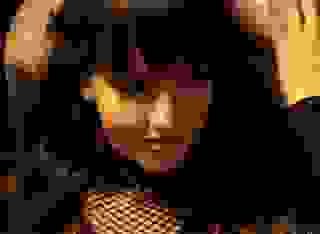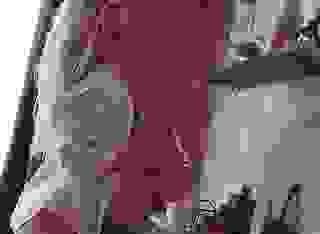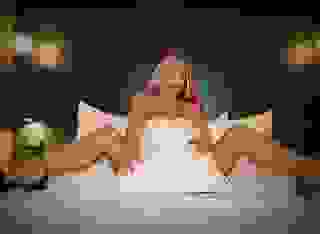Note: You can change font size, font face, and turn on dark mode by clicking the "A" icon tab in the Story Info Box.
You can temporarily switch back to a Classic Literotica® experience during our ongoing public Beta testing. Please consider leaving feedback on issues you experience or suggest improvements.
Click hereYou grow as a person by overcoming challenges. Most people face the usual things like school, jobs, even getting married. But the people who grow the most learn how to survive the impossible tasks, the things that you thought you could never do; those are what make a man. The first six weeks in the Army did that for me.
Finding out I could handle all the stuff that the Army threw my way gave me confidence. It taught me how to take control of my life. And in that respect, I went from crying in my bunk in the first couple of nights, to a man who believed that he could accomplish anything no matter what the odds.
There were two parts to recruit training, basic and then advanced. We took the Army General Classification Test about half way through the process. It was supposed to help you decide what to specialize in.
Most of the recruits were draftees. So, they specialized in marching and being shot at. But I was already contracted for flight school. So, after the recruit segment I was moved to the 63rd Army Air Forces Contract Pilot School in Douglas, Georgia.
This was the stage where the Army decided whether I would be a navigator, bombardier, or pilot. The first part was academic. Thirty of us lived in a big barracks while we learned the mechanics and physics of flight. You became an "Aviation Cadet" when you passed that phase. I studied hard and came out top of the class. So, they made me a pilot.
Then, for the next ten months, you learned all the things you needed to know to become an Army Air Force flyer. I started out in a Stearman Kaydet, which was a simple, sturdy aircraft. You had to solo in order to not "wash out."
That was a stressful time. I remember, we had one guy who was very religious. He used to lie in his cot saying prayers. One night somebody asked him if had just soloed. Without even looking up he said, "You bet your ass I did" and continued with his prayers.
After graduation, we were assigned to either fighters, or bombers. Of course, we all wanted to fly fighters. But the strategic bombing campaign had just kicked off over Germany and they needed a lot of new bomber pilots. If I'd thought about that for a minute, I would have figured out why. But I was still dewy eyed innocent back then.
I was smart and I paid attention to detail. So, I was toward the top of the class in every phase. Thus, I was commissioned a second lieutenant in May 1943, and designated to learn the ins-and-outs of the new B-26B Marauder. We got three months of stateside training in those aircraft before we were certified for combat duty.
I was assigned to the 17th Bomb Group. They flew B-26s out of Decimomannu Air Base, just outside the city of Cagliari on the island of Sardinia. I was dropped off there as a "replacement" pilot by the Liberty Ship John Banvard in November of '43. The last day of that trip was my first introduction to the war.
The Banvard was passing south of the Island of Sant' Antioco when a flight of three JU 88s showed up. Italy had already surrendered. But the Krauts were alive and well and conducting the war out of airbases in central Italy.
We had a three-inch gun forward, and a four-inch gun aft, along with ten twenty-millimeter antiaircraft guns. So, we could defend ourselves. But those black shark-like Nazi aircraft skimming overhead were still a fearsome sight.
The guns made a lot of racket. The JU 88s took a couple of desultory bombing passes and departed. There were some big booms and a few nearby geysers of water, nothing else. I gave the Germans failing grades for accuracy. But it looked like they were just going through the motions.
That was my first insight into war. I had imagined a daring and implacable enemy who would do whatever was necessary to kill me. Whereas, most of the other side was just like I was. They were kids doing their duty and trying to avoid getting killed in the meantime.
Sure, there were Hun fanatics who would've defied the odds to hit something. But close enough was good enough for sane people.
*****
The Marauder was a relatively compact plane. And at just 58 feet it was laid out a little different than the nearly 80-foot heavies. The most important difference was in the cockpit. There was a small passage in the instrument panel to my right. It was where Whizzer squeezed through into the bombardier's position in the Plexiglas nose.
The passageway began at Bobby's left knee. So, Bobby only had a wheel, but no rudder pedals. Eldon sat behind a bulkhead aft of the cockpit. The tunnel, dorsal and tail gunners sat behind the bomb bay in the back. Needless to say, it was tight.
I'd been in Bobby's seat for the first ten missions. Those were primarily milk runs over the landing at Salerno. The people on the beachhead were getting all they could handle from the Germans.
We were throwing every available bomber at them to break open the lodgment, including the heavies. But it was the low-level bombing of the B-25 and B-26 crews that killed the German armor. We were just across the Tyrrhenian Sea on Sardinia. So, we were flying a couple of sorties a day well into September.
The Marauder could carry 2,000-pound bombs in the forward bomb bay. But we were loaded with smaller, antipersonnel, and anti-armor ordinance on those trips. Our four blister machine guns also let us strafe the Nazi formations and those passes wreaked havoc.
I was promoted to the pilot's seat when Captain Morrison was rotated home after 35 missions. I also got a second silver bar with the move. Morrison was a good mentor and the crew was top-notch, so the transition was relatively painless.
That was when Bobby came on board. He was a year younger, twenty-one to my twenty-two. His family was Italian, and his Bronx accent was so thick you could spread it on a bagel. He liked the Sardinian girls and they liked him.
Me? I lived for V-mail. There was a letter from Betty in every batch. It was mainly homesick inducing stories, with a lot of breezy gossip about life on the home front. A piece of news that I didn't like was the fact that Duke had been classified 4-F.
It seems that poor Duke suffered from the dreaded malady of flat feet. He regretted being unable to serve his country. But he was doing his part working at his father's bank. Perhaps that was the reason why Betty's letters began to come less frequently. Then the final one put the stake through my heart.
I wrote Betty whenever we were stood down. But we were flying at least three missions a week and sometimes five or six. We had been spending the winter bombing the Krauts on the Gustav line. The Marauders and Mitchells were the only really effective way to deliver the stuff that the Brit and American ground-pounders needed to crack that nut. The heavies lacked the precision.
After we flattened the old Benedictine Abby at Monte Casino in February of '44, things began moving up the peninsula. Still, it was slow going. Then, for some reason we shifted our focus. We started hitting the railyards in Marseille and Toulon almost daily in April and May.
The events of June sixth answered the question about why we were doing that. Interdicting railways made a lot of sense now that our forces were fighting their way out of Normandy. But at the time, I couldn't understand why we were wrecking rail junctions in places like Limoges and Clermont-Ferrand.
*****
Everybody in the briefing room gasped when they pulled the curtain back. Today's mission was to two big marshalling yards in Lyon. We got the job instead of the heavies because the railyards were right in the middle of the town.
It was at the absolute limit of the Marauder's range and it was obvious from the recon photos that the place was heavily defended. Concrete flak towers were everywhere. We knew that a few of us wouldn't be coming back.
Dawn was breaking. It looked like it was going to be a clear and sunny day. But the Brit's pathfinder Mosquito over the target reported that it was cloudy. So, we lounged in the sun next to the plane until almost mid-afternoon. It was an interesting dichotomy, the serenity of the farmers working their fields on the other side of the security fence, juxtaposed against us and our waiting instruments of war.
I thought they might scrub the mission, since it had gotten late. We'd been sitting next to the plane for several hours when the "follow me" jeep exited the control tower area and we knew it was finally on.
We scrambled back into our positions, closed the hatches and the ground crew started walking the big four bladed propellers around to prime the engine. The Coffman charges fired and Beautiful Betty's two Prat and Whitney R-2800s roared into life.
At that point, taking off was like commuting to work. I was just a twenty-two-year-old kid. But those skills had been drilled into me by endless repetitions. So, it was second nature. We took off at twenty second intervals and formed up at ten-thousand feet in a box composed of two echelons, three planes each. We were flying almost wingtip to wingtip and that took concentration.
The Mediterranean was bright blue and calm. The French coast east of Marseilles was picturesque. This was the legendary Riviera, where all the beautiful people sunned themselves a few years earlier. They would have a hard time doing that now, with the barbed wire on those beaches.
The Mighty Eighth had done a good job of pulling Luftwaffe fighter command's fangs. So, we didn't see any 190s or 109s during the three-hour trip over. The sun was setting as we passed the IP and began to track in on the bomb run to the Lyon railyards.
We bombed on the lead plane in the high echelon. The bombardier on that plane was the one with the Norden bombsite. We were the lead in the low echelon. The rest of our echelon bombed on us. That made us the front plane in the second wave of the box, which put us smack dab in the middle of the aiming point for the flak gunners below.
The flak was so thick you could walk on it. The relentless explosions and buffeting kept me busy just keeping the plane level and on course. We were the last box to bomb. So, the Heinies were really getting the range as we came over the release point.
Whizzer had just called "bombs away" when there was a huge concussion. It temporarily stunned and deafened me and shook our plane like a terrier with a rat. It must have been just below and behind the starboard engine because we immediately lost power and began to trail smoke.
The B-26 was the fastest bomber in the U.S. inventory because it had exceptionally high wing loading. In layman's terms that means that without the necessary speed it had the aerodynamic properties of an anvil. So, when we lost the number two engine we winged over and went into a steep dive.
The speed of the dive helped me get the plane right side up. We were temporarily in level flight. But Betty was crabbing at perhaps a hundred and fifty miles an hour, as the one engine drove us almost sideways. I'd lowered the flaps to expand the wing surface. But it was obvious that we weren't going to stay in the air much longer.
Billy Sparks, our tail gunner, was screaming into the intercom, "They're all dead back here." I told him to bail out. His position had its own hinged canopy. Then I turned to Bobby. He was missing a good bit of his head. That must have been where all the blood on the windscreen came from.
Whizzer was making panicked noises down by his feet, struggling to get out of the bombardier's tunnel. I yelled to Eldon to get Bobby out of the way. He stepped through the navigator's bulkhead, took one look at the grisly corpse, and threw up behind my seat. After Eldon stopped heaving, he dragged Bobby's body out of his seat. That seemed like an eternity while I was fighting to keep us in the air.
Once Bobby was out of the way, Whizzer rocketed past us like he was shot out of a cannon. Without uttering a word, Whizzer grabbed his chute and bolted into the blackness. The bomb bay was still open. Eldon snapped his chute on and threw himself out right behind him. Now, it was just me and Betty and she was mortally wounded.
They might have called her the Baltimore Bitch. But she'd been truer than the one I'd left behind. I thanked her for her faithful service, unbelted, grabbed my own AN-6513, and snapped it on. I still had Betty's letter in my pocket as I stepped into the void.
There was darkness. I pulled the D ring. There was a loud crack, a few moments of dangling, and then oblivion. I must have been very close to the ground. I came back to consciousness hanging in a tree. It was pitch black. I was momentarily confused. All I could hear were crickets and frogs. There were strong earthy smells. Then the awareness came rushing back.
It was like waking up from a nightmare only to discover that it was actually your new reality. I was in a state of shock. My natural tendency to problem solve saved me. Even as I was hanging there, I began to think through the situation.
First, I knew I had to get out of the damn tree. It took a couple of minutes of cautious struggling to unbuckle the parachute while slowly rotating in the branches. I was unhurt, except for a goose egg and a few scratches. I must have gotten those when I came crashing through the top of the tree. I had an escape and evasion package and a first-aid kit clipped on my parachute harness. They issued those to every flyer.
The first-aid kit had basic medical supplies. The escape kit was more useful. It had a booklet with handy French phrases, a compass and more importantly a map and a sheaf of French francs. And of course, I also had a .45 secured in a shoulder holster underneath my leather jacket. Most pilots had one of those.
I cautiously dropped to the ground. It was a humid night, moonlit and featuring a noisy chorus of bugs. I was in a forest on a steep hill, with a little town in the valley below. I could see its lights. But I had no actual idea where I was.
I knew the Germans would be looking for me. Hence, the first thing I had to do was get away from that place. I had been distracted keeping us in the air. So, I wasn't surprised that the terrain was mountainous. We'd been on a southeasterly course and the Alps were in that direction. At nearly three-hundred miles an hour we might have ventured into Switzerland. If not, I was in Vichy France.
If got caught it would either be internment, or a trip to a Stalag. I didn't fancy either option. So, I had to be careful about who I approached. We were instructed to make our way to Spain if we were shot down. Spain was neutral, even though Franco, Mussolini and Hitler were all pals. We could get home via Gibraltar if we made it.
I would have to travel clear across southern France to get to Spain. But I had a map and compass. I struggled down the mountain moving toward the town. The first thing I encountered was a large house. It was situated on the other side of a clearing at the base of the mountain and it was surrounded by outbuildings and smaller houses. My watch had survived the crash and it told me it was 10:30 PM.
My first task was to find new clothes. I was hoping to pay a French farmer for an outfit that would let me blend in. I was wearing my flight jacket and the two layers that were designed to protect me from the cold at 15,000 feet. It made me look like a billboard with, "Downed American flyer" on it. It was also at least eighty degrees in that hot night and the wool was starting to itch.
The house and all of the surroundings had a haunted look. That was strange, since it was a substantial place. It looked like it might have once been a hotel. Of course, nobody knew what the Nazis might have done to the occupants. Maybe they'd relocated them for some reason?
I stayed in the shadows, as I crept through the last of the forest and across a wide garden, which didn't appear to have been tended recently. The days that I'd spent hunting deer with my dad stood me in good stead as I surreptitiously crept across the open space.
I got to the back of the house and found the door had been kicked in. That probably explained the lack of occupants. The door was hanging by one hinge. I moved it aside and carefully made my way into the dark building. It was pitch black in there.
I had a choice. There was a survival flashlight on my harness. Did I turn it on and risk revealing myself with its bright beam? Or did I try to explore this apparently abandoned place in the dark. My next step made the decision for me. I kicked a bottle and it rolled noisily across the floor.
It startled me so badly I nerly shit myself. I heard a noise as I fumbled out the flashlight. It sounded like a rat skittering away. My heart was beating faster than it had in my last moments on the plane. I had the passing thought, "Was that only two hours ago?"
I found myself in what had probably once been a kitchen. There were cupboards and pans and what looked like the remains of a meal. There were big candles just lying unused on a sideboard. I had my ubiquitous Zippo with the squadron insignia on it. I killed the flashlight and lit one of the candles. The candle gave me enough light to look around and it wouldn't attract as much attention.
I carefully moved into the next room, which was full of long tables. It was bigger, like a mess hall. It was empty and many of the chairs and tables had been knocked over. It looked like there had been a fight in there.
I was looking for a bedroom, or any place where there might be some discarded clothing. There was a flight of stairs. I noticed a stitching of machine pistol bullets across the wall of the staircase. There wasn't any blood. So, maybe somebody had fired into the air to get people's attention.
There was a hall at the top, with rooms off it, like a dormitory. I crept into the largest of the rooms. It made up perhaps a quarter of the upstairs. I was still cautiously feeling my way along. There were lots of beds, with covers scattered everywhere. The only sound was the creaking of my footsteps.
Still being cautious, I crept slowly toward a huge armoire that was situated on the back wall opposite the windows. It was an ornate piece, made of mahogany and seemed to serve the purpose of an actual closet for the room. There had to be something I could wear in the armoire.
I would hate to give up my stylish leather A2. But I would hate sitting in a POW camp even more. I cautiously reached for the handle of the armoire and it emitted a HUGE SOB!!
I yelled in surprise and stumbled backward dropping the candle. There was a frantic minute as I stamped out the little fire. Then I said shakily, "I'm armed. Come out of there with your hands up." It was a bluff. But it was all I could think of.
A terrified voice said, "s'il vous plaît ne me faites pas de mal." I had no idea what THAT meant. But I could tell it was young and female. So, I turned on my flashlight and opened the door. There was a pitifully huddled shape cowering beneath the clothes.
My first glance registered a thick mass of dark curly hair with a little gamin face, age indeterminant. There were huge dark eyes a slim pointed nose and a wide mouth in a round, almost childlike face. She said pleading, "Ne me tuez pas!!"
I had no idea what she had said. But she was obviously terrified. I pointed to myself and said softly, "American." I fumbled out my phrase book and said, "Mon avion s'est écrasé et je dois me cacher." According to the book that meant, "My airplane has crashed, and I need to hide."
I'm sure I butchered the pronunciation. Because she hesitated for a second. Then she got a confused look on her pretty little face, and said in decent English, "You want to hide an airplane?"
Then, she got an expression of understanding and said wonderingly, "You are an American flyer??!" It was like I'd just ridden up in shining armor.








